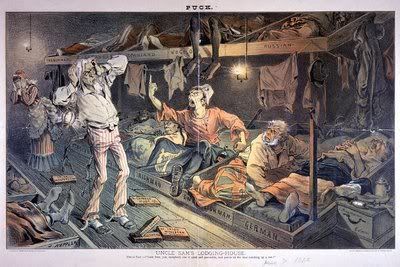Even though I may not be reaching my target readership with these kind of posts, I'm going to keep up with this silly Shakespeare-related babble. I find everything about this literary icon endlessly amusing, ever since I learned about the authorship question. Oh, it's almost too juicy sometimes.
Of course, many will be bored to death with this. I realize that my posts look rather long, but why is it that text is somehow less accessible in large amounts on a computer screen, on a website (sorry, blog)? I might shrink the font size in the future, to make my rantings look nice and concise.
But it's my blog, my power, my kingdom and my horse that I'll kiddy up any way I wish to go. In the name of myself, this blog and the holy ghost of Shakespeare, whoever s/he was. Amen.
So the other day it occurred to me to search for videos related to the Shakespeare Authorship question (wholly deserving of the capital letters right) on Youtube. Nothing too original came up, except for this fine piece of someone playing Edward de Vere.
There's also the taping of the mock trial in Washington. The audience will apparently laugh at anything. Some people just listen and wait for anything to laugh at, so as not to give an impression of having no sense of humour. Silly if you ask me.
Then I ran into John Hudson's theory of Emilia Lanier as Shakespeare. Or rather, his "discovery". Finally a candidate I'd love to believe in. What if Shakespeare was a woman? Wouldn't that be so cool?
Seriously speaking, I still know too little of the issue to vouch for any certain candidate. I'm still not sure I have to. The agnostic camp may not be a whole lot of fun, but at least I know I don't have any ulterior motives behind every statement I might make.

("Edward de Vere" from aforementioned Youtube video)
Earlier this week I read a book pertaining to methods in historical study. There were many points that struck a chord in me, thinking back to writing research papers of any kind. There was something about being able to relate to the people in the past, in order to draw the right conclusions about anything they did, to do justice to them when writing about them.
When I was writing on the authorship question, this aspect puzzled me. Who exactly should I try to relate to? Shakespeare, whoever s/he was, and his/her contemporaries, or the authorship question enthusiasts? If the latter, it looks like I failed miserably. It put me off how so many of these researchers were trumpeting their respective candidate without seeming to have much of self-criticism. Once they had made up their mind about their choice of candidate, they turned on the defensive and overly assertive gear.
Now that I think about it, the strong rhetoric is probably partly due to the publicity that the question has received. In addition to multitudes of books by professionals and amateurs (here meaning simply someone without a scholarly background), there are also websites galore that can be accessed by anyone, anywhere, any time. In public, you obviously have to make your statement without hesitation if you want to get it through to people. They'll have none of this hedging that is so natural and even imperative in the scientific way of writing.
Another interesting point in the book was something about certainty with your research results. It reminded me of what was said in a book on the history of childhood. Something along the lines that childhood historians often wake up in cold sweat in the dark of the night when realizing how thin a line separates their work from fiction.

(What came up with "hysteria + rhetoric" on Google Image search)
I wonder if there isn't something of this kind of hysteria present in the rhetoric of the authorship scholars and researchers. If you're going to spend years on studying an author's work, you don't want to be held in an eternal state of suspense as to who it is you're studying, even if it doesn't always matter in literary analysis.
It could also be the case that these brits and americans simply write differently from what I'm used to reading. It's strange, though, since I rarely read anything in any other language than English. You'd think I was used to it by now. It must be related to the genre of writing, i.e. books aimed at a popular audience, as well as internet websites.
So don't be fooled by Hudson's less than convincing case on that video. Calling the Stratford Shakespeare "Shaksper" would make anyone sound a little cuckoo. His website is more impressive (takes a while to load, be warned).
Besides, "there are just too many coincidences here"! Wow, I was instantly won over by that particular statement! She was a known feminist, a Jew, used De Pisan as a source as did Shakespeare and ‒ gasp ‒ was mistress to Henry Carey, who was the patron of the acting company Lord Chamberlain's Men, which performed Shakespeare's plays among others. It boggles the mind!
As sugar at the bottom, she even included the names of important people in her life in the plays, in the form of clever puns. To show to the posterity that it was her who wrote them. It can't get any more obvious than that.
It's the cumulative argument all over again. A large number of coincidences sharing one common denominator must by laws of nature entail truthfulness of the original premise! It's like horoscopes: the parameters are so loosely defined that they'll fit any person to a tempting degree.

(Was Emilia Lanier Shakespeare - the most brilliant hermafroditic literary genius in the world?)
Emilia Lanier was not a complete stranger to me. Earlier, she's been identified as the "Dark Lady" of the sonnets. For instance, Michael Wood (2003, In Search of Shakespeare) reckoned that Shakespeare might have had an affair with this woman when living in London, away from his wife and children in Stratford.
Maybe she's the one who gave Shakespeare syphilis (again proposed by mr. Wood), so as a result the 40-something Shakespeare described himself as old and decrepit in the sonnets. Wouldn't that explain everything so neatly? In your face, Oxfordian heretics!
Hudson connects Lanier with Shakespeare because of her background in music, among other things. Her family performed in court. And what d'you know: Shakespeare's plays are "the most musical" in England! Witness "nearly 2000 musical references" and "300 different musical terms" - clearly proof that Shakespeare the author must have been a professional musician, or connected to such people.
Obviously I don't dare to argue on this with Hudson, who holds a certificate in a Shakespeare Institute, who reviews for a Shakespeare journal, and who is writing a thesis on a Shakespeare play. He must know the plays far better than I ever could.
Yet I can't help wondering, how come is it that I keep bumping into these fabulous figures and almost incredible assessments of the nature and vocabulary of Shakespeare's plays. It all makes the (wo)man sound completely inhuman in his boundless abilities and knowledge of everything there is to know in the world.
Taking a wild guess, if I had a look at the list of the references and terms, I would probably find perhaps 50 quotes of the word "music", or some musical instrument. Surely, if you refer to music and musical instruments a lot, it means you must be musically talented. Right?
Music, lute, piano, violin, string, chord, note, minor, major, melody. What if I added a string of musical terms at the end of each of my posts? Or better, sprinkled them here and there to spice up my language? If some day some future historian for some reason created a corpus of my posts and started searching for musical terms, they could conclude that I was a very musical person. There could simply be no other explanation.
*Ever wonder why 19th century novels nearly always seem to have subtitles starting with "or, [yada yada yada]"? I have. Did the authors have trouble making up their minds about the title, or were they just trying to be as informative as possible?
(The first picture shamelessly ripped from the Youtube video; the second picture from John Hudson's website.)
No comments:
Post a Comment